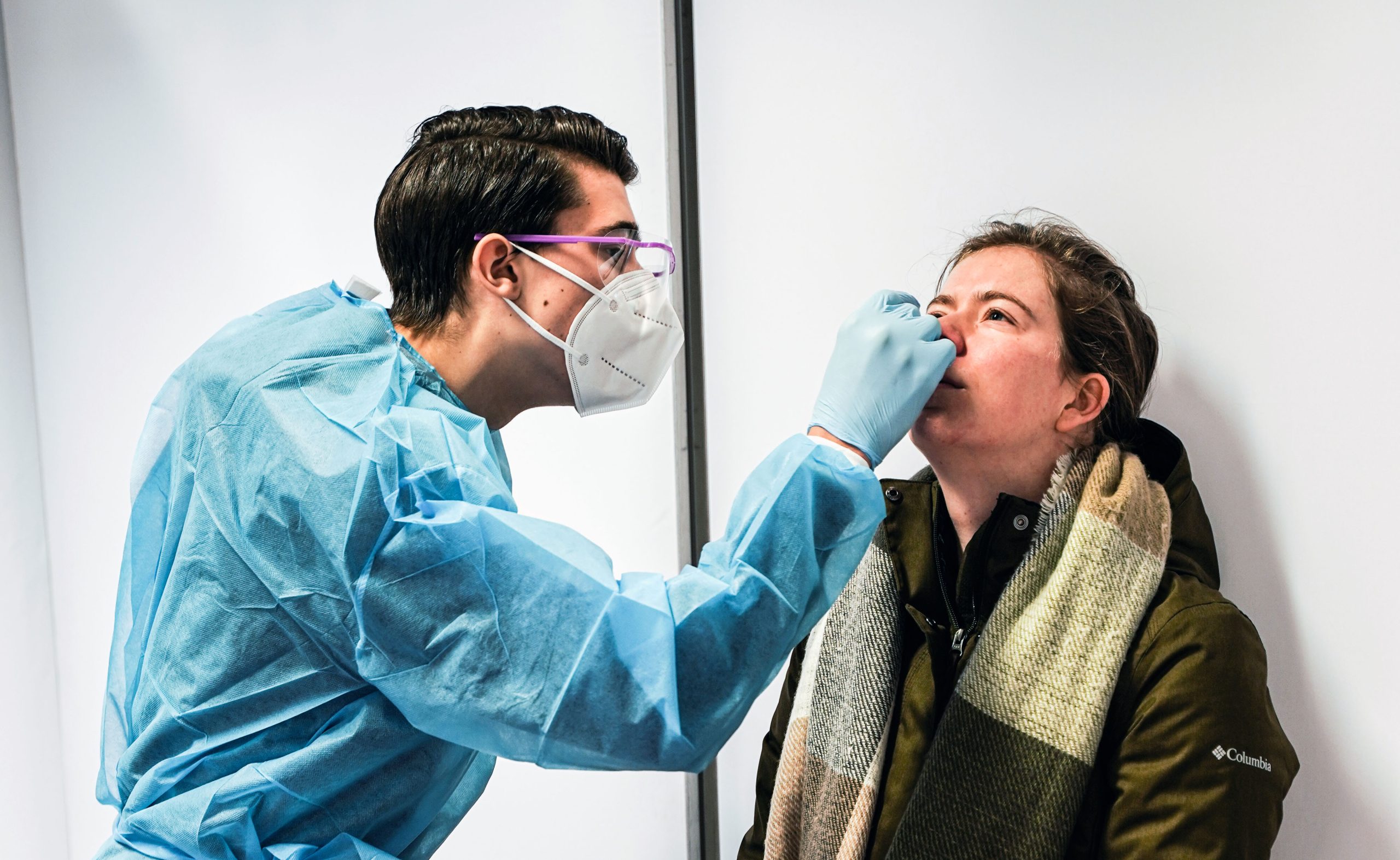TU Delft has plans to run pilots to allow more physical education. Whether they can start depends on the Ministry of Education.
The University of Groningen began quick-testing students in January. (Photo: UKrant)
The Ministry had already assigned Delft, Groningen and Amsterdam as cities where universities of higher education, universities and ROCs (regional training centres) may set up joint quick test locations. The University of Groningen started a pilot on 18 January whereby students were invited to take a test 24 hours prior to physical exams. A couple of days later, UKrant, the University of Groningen’s news website, reported that one quarter of the first group of students called up had been tested. The University of Groningen is currently scaling up the testing capacity.
On the intranet, TU Delft reported that it is planning to run a pilot for quick tests for students doing laboratory courses for whom the one-and-a-half metre regulation cannot always be maintained. These laboratory courses have been temporarily closed. TU Delft gives practical laboratory work and test flights as examples, but has not yet identified specific laboratory courses.
An option is to work in ‘bubbles’
As is the case in Groningen, the tests are voluntary. Teachers will offer alternatives to students who do not take the tests. TU Delft also announced that, on top of the quick tests, distance and hygiene will still be prioritised. Another option is to work in ‘bubbles’, small groups of students.
A further option is to experiment with influencing behaviour. To this end, TU Delft is eyeing technology used by the accounting firm Ernst & Young and the indoor GPS company Forkbeard who jointly designed a system for data collection. The system can be used to anonymously monitor interaction between people or between bubbles. The collected data can then be combined with traffic flow models to give insights into human behaviour and the effectiveness of regulations. The objective is to learn to anticipate areas of risk better and to better design and optimise protocols. Using methods such as vibrating bracelets, the system can also warn people if they have been close together for too long.
Apart from these pilots, TU Delft is looking into the conditions needed to reopen study and quiet workspaces for students. It is unclear at the moment if they will use quick tests for this purpose.
Do you have a question or comment about this article?
s.m.bonger@tudelft.nl


Comments are closed.